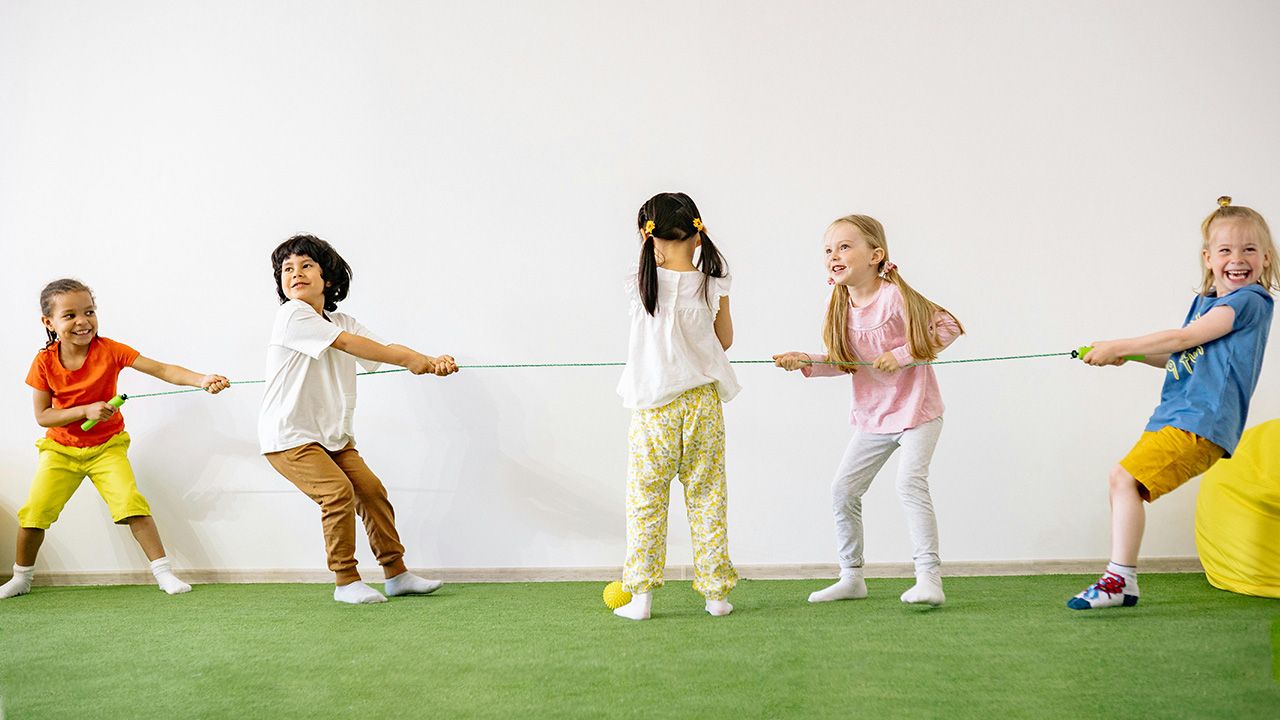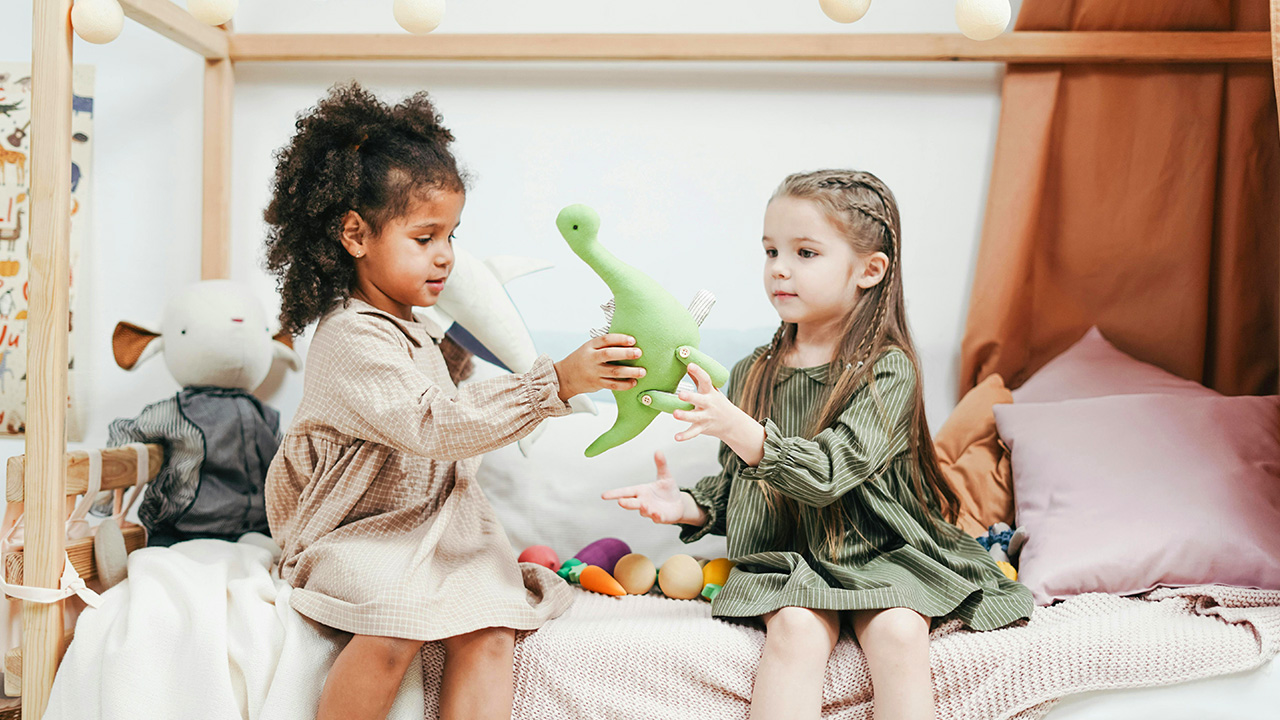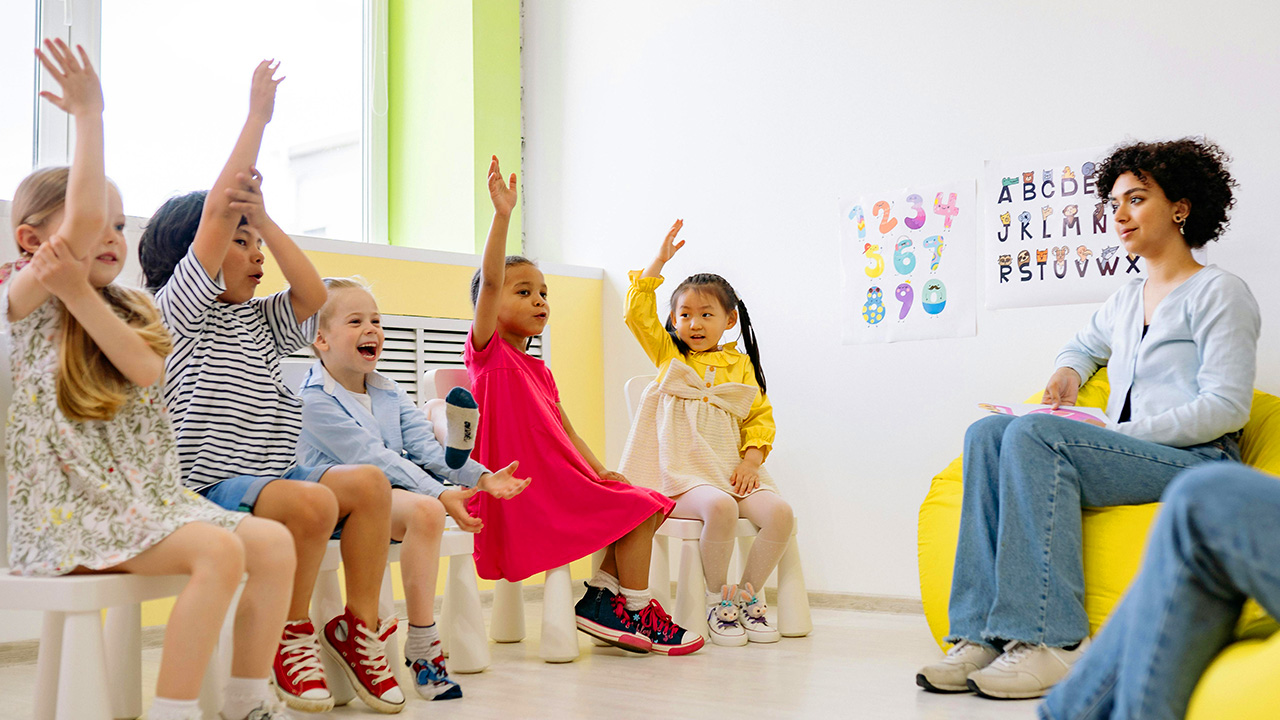
What Is SEL? And Why It Matters for Kids Ages 2 to 5
You may have heard the term SEL popping up in schools, parenting books, or early childhood programs. But what exactly is it? And why should you care as a parent or caregiver?
SEL stands for Social and Emotional Learning. It's an important way kids (and adults!) learn to handle big feelings, get along with others, make choices they can feel good about, and deal with everyday ups and downs.1,2
In simple terms, SEL can help kids grow into good humans.
What Does SEL Look Like for Young Children?
For children ages 2 to 5, SEL isn’t always a subject they just sit down to learn—it can be woven into everyday moments. It may looks like:
- A toddler learning to wait their turn for a toy
- A preschooler figuring out how to say sorry after a tough moment
- A caregiver helping a child name what they’re feeling: “You’re upset because your block tower fell”
- A group of kids learning how to play together and share
These small moments help build the foundation for empathy, self-regulation, and cooperation—all skills that help kids thrive in school and in life.3 However, as parents and caregivers know, these skills may not always develop at the same time, nor do they appear overnight. So it is important to meet your child where they are at, and keep in mind developmental milestones (to learn more, check out the CDC milestones website or this resource from the NIH).
Why SEL Matters So Much in Early Childhood
Research shows that early social and emotional skills are strong predictors of future success.3 Children with well-developed SEL skills in preschool are more likely to:
- Do better academically in elementary school4,5
- Form stronger friendships6
- Develop greater resilience when life gets tough, and empathy for others who may be struggling7
And it can start early—kids begin building these skills from the very beginning, and the toddler and preschool years are often key times for them to explore, practice, and grow.8,9
How Parents and Caregivers Can Support SEL at Home
The good news? You don’t need to be an expert to help your child grow socially and emotionally. There are some easy ways to help them that you may already be doing, like when you:
- Comfort them after a meltdown with physical touch, distraction, and/or warm language
- Talk about feelings during storytime or other daily activities
- Model calm breathing when you're frustrated or upset
Even five minutes a day of warm, responsive connection can support SEL in powerful ways.
Bottom line: SEL is not about being perfect all the time—it’s about finding ways to help young children practice the skills they need to understand themselves, relate to others, and navigate the world happily and healthily.
Let’s keep growing together!
Research Represented:
1. Schonert-Reichl, K. A. (2017). Social and emotional learning and teachers. The Future of Children, 27(1), 137-155.
2. DeMeulenaere, M. (2015). Promoting Social and Emotional Learning in Preschool. Dimensions of Early Childhood, 43(1), 8-10.
3. McClelland, M. M., Tominey, S. L., Schmitt, S. A., & Duncan, R. (2017). SEL interventions in early childhood. The Future of Children, 27(1), 33-47.
4. Arnold, D. H., Kupersmidt, J. B., Voegler-Lee, M. E., & Marshall, N. A. (2012). The association between preschool children's social functioning and their emergent academic skills. Early Childhood Research Quarterly, 27(3), 376-386.
5. Denham, S. A., Bassett, H., Mincic, M., Kalb, S., Way, E., Wyatt, T., & Segal, Y. (2012). Social–emotional learning profiles of preschoolers' early school success: A person-centered approach. Learning and Individual Differences, 22(2), 178-189.
6. Pahl, K. M., & Barrett, P. M. (2007). The development of social–emotional competence in preschool-aged children: An introduction to the fun FRIENDS program. Journal of Psychologists and Counsellors in Schools, 17(1), 81-90.
7. Soliman, D., Frydenberg, E., Liang, R., & Deans, J. (2021). Enhancing empathy in preschoolers: A comparison of social and emotional learning approaches. The Educational and Developmental Psychologist, 38(1), 64-76.
8. Scharf, R. J., Scharf, G. J., & Stroustrup, A. (2016). Developmental milestones. Pediatrics in Review, 37(1), 25-38.
9. Rademacher, A., & Koglin, U. (2019). The concept of self-regulation and preschoolers’ social-emotional development: A systematic review. Early Child Development and Care, 189(14), 2299–2317
Empower Your Child’s Growth
Help your child develop essential social-emotional skills. With a Tiny Souls Subscription, unlock our full library of research-backed modules, toolkits, and hundreds of pieces of content you can access anytime on our app or website, with new content added regularly to support your ongoing journey!




